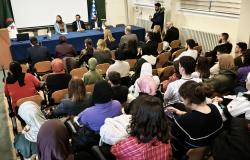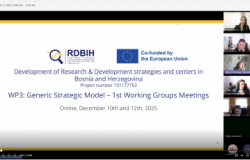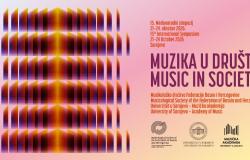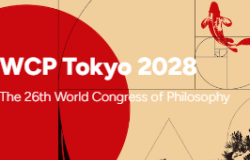International Conference: Bosnia and Herzegovina 25 years since the Dayton Peace Agreement
The Faculty of Political Science, University of Sarajevo in cooperation with the European Regional Master's Program in Democracy and Human Rights in Southeast Europe (GCSEE/ERMA), the Center for Interdisciplinary Studies, University of Sarajevo organized an international conference on 4 November 2020 that brought online together theorists and practitioners from Bosnia and Herzegovina and abroad.
The conference was opened with welcoming speeches by the University of Sarajevo Rector, Prof. Dr. Rifat Škrijelj and organizers Prof. Dr. Sead Turčalo, Faculty of Political Sciences Dean and Prof. Dr. Asim Mujkić, GCSEE/ERMA co-director. The participants were addressed by H. E. Johan Sattler, Head of the Delegation of the European Union to Bosnia and Herzegovina and Special Representative of the European Union in BiH and H. E. Nicola Minasi, Ambassador of the Republic of Italy to Bosnia and Herzegovina.
This year marks a quarter of a century since the signing of the General Framework Agreement for Peace in Bosnia and Herzegovina. The agreement reached in Dayton on 21 November 1995, and signed on 14 December same year in Paris, created a constitutional framework in Bosnia and Herzegovina that is still permeated by deep political and social polarization.
Although there has been talk for more than a decade about Bosnia and Herzegovina's transition from the post-Dayton to the Brussels phase, which formally began with the signing of the Stabilization and Association Agreement in 2008, the country remains crucially shaped by Annex IV of the Dayton Peace Accords ratified - the Constitution of Bosnia and Herzegovina. Discussions on a functional constitutional arrangement, on the one hand, and the very idea of the state, on the other, continue to shape the public space of Bosnia and Herzegovina, with many unresolved issues related to fundamental democratic values.
The work of the conference is organized through four panels:
- Bosnia and Herzegovina - historical context and diagnosis of the situation
- The Dayton Peace Agreement - Challenges for Democracy and Human Rights
- Regional relations - present and view of the future
- A quarter of a century of the Dayton Peace Agreement - What kind of state do we want?
Over 20 panelists, esteemed professors and practitioners from Bosnia and Herzegovina, Southeast Europe and the EU, presented their topics and participated in the discussion on the leading issue of the conference: Where is Bosnia and Herzegovina going?









